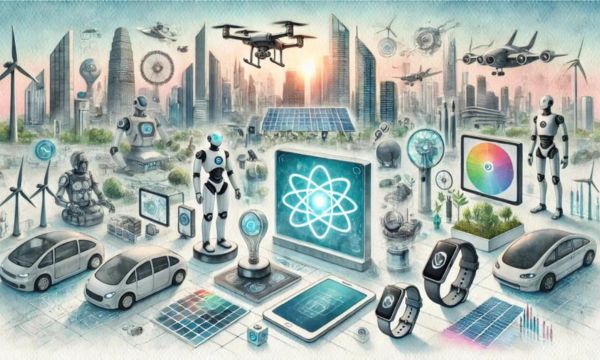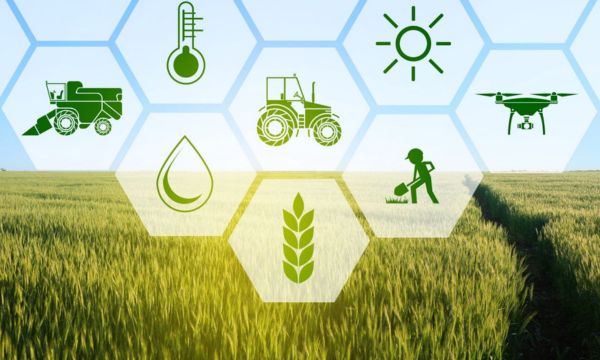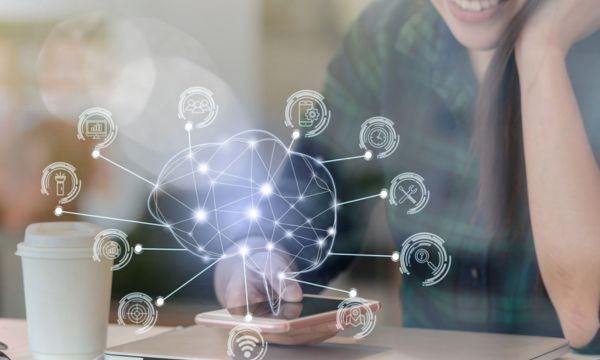10 Breakthrough AI Tech Innovations That Will Define 2025!
As we enter 2025, artificial intelligence (AI) continues to be at the forefront of technological advancements, bringing new ideas to the table in many areas.
Ad
This year we’ve seen groundbreaking discoveries that are changing not only what tools do, but also how we use technology in our daily lives.
Here are ten AI technologies that will change the world in 2025, along with some examples of how to use them.
1. Generative AI for content creation
Generative AI technology has advanced so far that it can now create raw text, images, music, and videos just like humans.
These tools transform marketing, entertainment, and education by enabling the production of personalized materials at scale, engaging users, and sparking creativity.
2. AI-based precision medicine
Artificial intelligence is playing an increasingly important role in healthcare, especially in precision medicine, where computers look at genetic information to ensure that each patient receives the best treatment.
This new idea could have a major impact on the way we treat complex diseases such as cancer, by making treatments more effective and reducing side effects.
3. Self-driving cars and urban mobility
By 2025, the dream of fully autonomous vehicles will come closer to reality. Improvements in perception, decision-making, and navigation capabilities of artificial intelligence make self-driving cars safer and more reliable.
These solutions will change the way people move through cities, reduce traffic accidents, and improve urban planning.
4. Use AI to protect the environment
Artificial intelligence tools are being used to combat climate change and biodiversity loss. Artificial intelligence is a powerful tool to protect the environment.
It could be used, for example, to analyze satellite images to monitor deforestation and the movement of wildlife and to find the best ways to create renewable energy.
5. More advanced natural language processing (NLP)
Thanks to NLP tools, great advances have been made in understanding, interpreting, and generating human language.
This growth has enabled virtual assistants, real-time translation services, and tools that understand context and tone, improving global collaboration and communication.
6. AI protects against cyber attacks
As cyber threats become smarter, AI innovations in cybersecurity offer ways to protect yourself before danger arises.
These systems can detect hazards and stop them before they occur. This protects data and infrastructure against increasingly smarter cyber attacks.
7. Combination of quantum computing and AI
When quantum computing and artificial intelligence work together, they usher in a new era of processing power.
Quantum algorithms make artificial intelligence smarter, especially when it comes to quickly solving difficult problems in areas such as logistics, medicine, and cryptography.
8. AI can help logistics and supply chains
With automation, real-time tracking, and predictive analytics, AI is changing the way supply chain management and logistics are performed.
These technologies find the best ways to track inventory and guess what customers want, reducing costs and making everything run more smoothly.
9. AI-powered predictive maintenance in manufacturing
AI-driven predictive repair is changing the way things are made. Artificial intelligence can predict problems before they happen by looking at data from machines and equipment.
This reduces downtime, extends equipment life, and saves money.
10. Ethics and Government of AI
As AI becomes more widely used in everyday life, there will be a push for ethical AI and strong governance systems by 2025.
These projects aim to ensure that AI is created and used in an open, fair, and ethical manner that is consistent with society’s values. They do this by addressing issues of privacy, bias, and liability.
But the rapid development of artificial intelligence also means that ethical issues, data protection, and the possibility of job losses must be carefully considered.
As we adopt these technologies, it is important to ensure that technologists, politicians, and the public can discuss them with each other so that these AI innovations benefit everyone.

AI Tech Innovations (Source – Google)
Conclusion
The AI technologies that will shape 2025 are a stunning combination of the capabilities of the human brain and machines.
As we continue to explore and push the boundaries of artificial intelligence, there’s a good chance that great things will happen. If we use these technologies responsibly and ethically, we can solve global problems, improve everyday life, and create new possibilities.
The future of artificial intelligence is not just about what it can do; It’s also about how we can use it to make the world a better place.
FAQs
1. What is generative AI and how does it help in content production?
The term “generative artificial intelligence” refers to computer programs that can learn from current data sets and then produce new text, images, music, and videos.
It is used to create automated and personalized marketing materials, art and music, educational content, and more. It gives you a lot of freedom to be creative and make it your own.
2. What role does artificial intelligence play in precision medicine?
The application of artificial intelligence in precision medicine requires looking at large amounts of genetic and health data to find the best solution for each patient.
By taking into account each patient’s unique genetic makeup, this personalized approach could improve treatment outcomes, especially for difficult diseases such as cancer.
3. What are the new developments in the field of autonomous vehicles in 2025?
By 2025, artificial intelligence algorithms for perception, decision-making, and navigation will change. This makes self-driving cars safer and more reliable.
These improvements will make urban transportation easier, reduce car accidents, and smoother traffic flow.
4. How can artificial intelligence be used to protect the environment?
In the field of environmental protection, AI is used to look at data from various sources, such as satellite images and sensors, to monitor issues such as the movement of wildlife, deforestation, and the effects of climate change.
It also increases green energy production and helps create better conservation plans.
5. What new things can be done with Natural Language Processing (NLP)?
Better understanding, interpretation, and generation of human language are some of the new aspects of NLP.
This enables virtual assistants, real-time translation services, and systems that understand context, feeling, and subtle expressions. This makes it easier for people and computers to talk to each other.
6. Can Artificial Intelligence Determine When a Hacker Threat Occurs?
Yes, AI can predict cyber threats by looking at data trends and outliers that can indicate potential security issues.
Data from past cyber attacks can be used to build machine learning models that can recognize signs of new threats and take proactive steps to protect themselves.
7. What changes does quantum computing bring to artificial intelligence?
Quantum computing gives artificial intelligence more computing power, allowing it to solve problems better.
This allows AI to solve difficult optimization, simulation, and encryption problems much faster than standard computers. This opens up new possibilities in many areas.
 AI in Content Creation: Unlocking a New Era of Productivity
AI in Content Creation: Unlocking a New Era of Productivity
AI in content creation is revolutionizing the way the media world produces, distributes, and consumes information. Ad […]
More The Ultimate Guide to Understanding AI Tech in Agriculture
The Ultimate Guide to Understanding AI Tech in Agriculture
Artificial intelligence (AI) technology is transforming the agricultural sector, making agriculture more efficient, sustainable, and successful in […]
More How AI Tech is Revolutionizing Customer Service
How AI Tech is Revolutionizing Customer Service
New technologies such as artificial intelligence (AI) are changing the way companies interact and serve customers. Ad […]
More